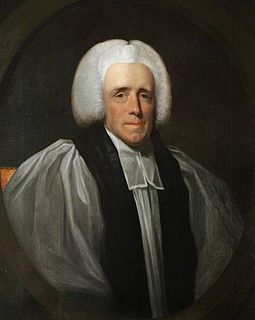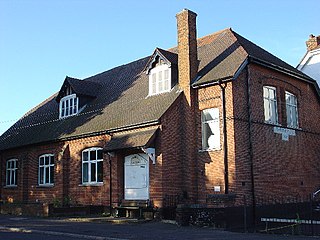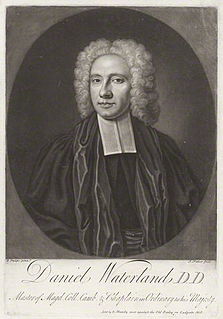
Joseph Butler was an English bishop, theologian, apologist, and philosopher. He was born in Wantage in the English county of Berkshire. He is known, among other things, for his critique of Deism, Thomas Hobbes's egoism, and John Locke's theory of personal identity. Butler influenced many philosophers and religious thinkers, including David Hume, Thomas Reid, Adam Smith, Henry Sidgwick, John Henry Newman, and C. D. Broad, and is widely considered "as one of the preeminent English moralists." He also played an important, though under appreciated, role in the development of eighteenth-century economic discourse, greatly influencing the Dean of Gloucester and political economist Josiah Tucker. Notable descents
John Clarke (1682–1757) was an English natural philosopher and Dean of Salisbury from 1728 to his death in 1757.
Thomas Hayter was an English whig divine, who served as a Church of England bishop for 13 years, was a royal chaplain. As a party advocate of the Pelhamites and a friend of the Duke of Newcastle, the erudite churchman was at the height of his powers in the 1750s. A renowned scholar in his days, it was for his divinity that he was recommended, but his friendship with the court and royalty that exemplified his true powers. Tolerant and eclectic, learned and intelligent he came to symbolise a golden age of aristocracy for Anglicanism.

Samuel Bradford was an English churchman and whig, bishop successively of Carlisle and Rochester.

James Russell Woodford was an English churchman who was Bishop of Ely from 1873 to his death in 1885.
John Ewer was an English bishop of Llandaff and bishop of Bangor. He is now remembered for an attack on the American colonists, prompted by their indifference to episcopacy.

John Ross or Rosse (1719–1792) was an English Bishop of Exeter.
Anthony Maxey, was the Dean of Windsor.
Timothy Clarke was an English physician, a founding Fellow of the Royal Society.
Thomas Rutherforth (1712–1771) was an English churchman and academic, Regius Professor of Divinity at Cambridge from 1745, and Archdeacon of Essex from 1752.
George Fothergill, DD was a British academic and Anglican priest. He was principal of St Edmund Hall, Oxford between 1751 and 1760.

Alured Clarke (1696–1742) was Dean of Exeter between 1741 and 1742.
Edward Cobden, D.D. (1684-1764) was a British divine, poet, and Archdeacon of London, from 1742–1764.
Edmund Castle (1698–1750) was an English churchman and academic, Master of Corpus Christi College, Cambridge from 1745, and Dean of Hereford in 1749.
Thomas Chapman (1717–1760) was an English churchman and academic, Master of Magdalene College, Cambridge from 1746.
Edward Clarke (1730–1786) was an English cleric and author.

John Clubbe (c.1703—1773) was an English cleric and satirical writer.
Thomas Robinson (1790–1873) was an English churchman and academic. He became Archdeacon of Madras in 1826, Lord Almoner's Professor of Arabic at Cambridge in 1837, and Master of the Temple in 1845.

Obadiah Hughes (1695–1751) was an English presbyterian minister.
The public domain consists of all the creative work to which no exclusive intellectual property rights apply. Those rights may have expired, been forfeited, expressly waived, or may be inapplicable.

Sir Leslie Stephen was an English author, critic, historian, biographer, and mountaineer, and father of Virginia Woolf and Vanessa Bell.

The Dictionary of National Biography (DNB) is a standard work of reference on notable figures from British history, published since 1885. The updated Oxford Dictionary of National Biography (ODNB) was published on 23 September 2004 in 60 volumes and online, with 50,113 biographical articles covering 54,922 lives.













